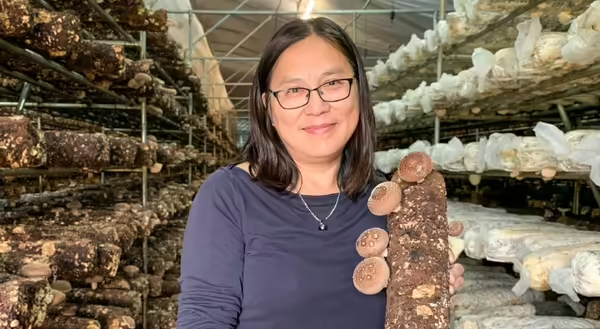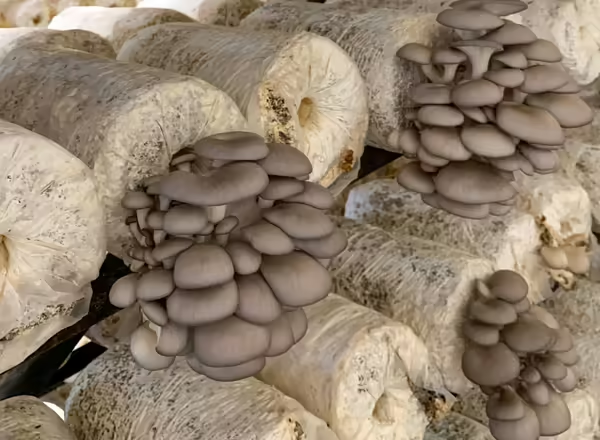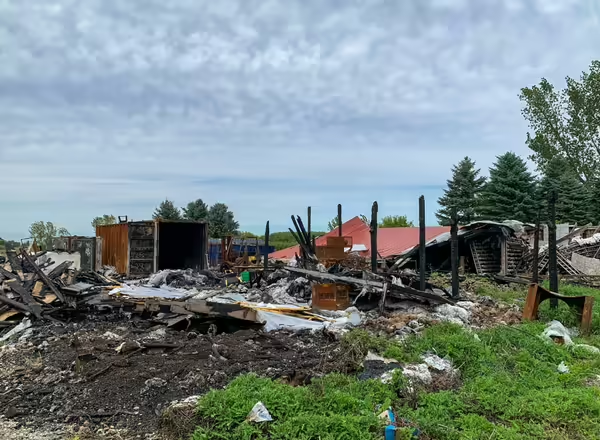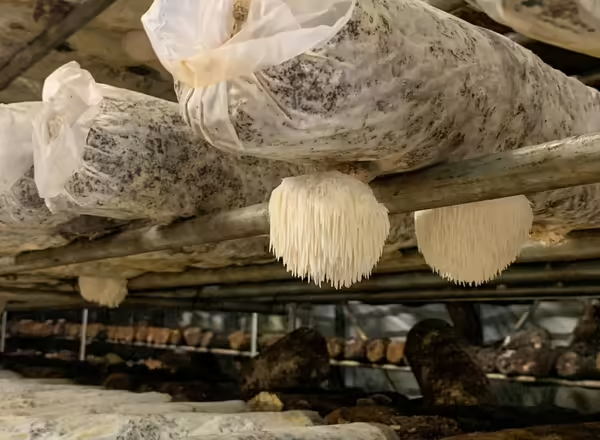
Happiness matters.
Mei Shao’s path to farming is unique. Raised in China, her parents encouraged a very traditional educational path. She studied in the U.S. and became a very successful executive architect for one of the most prestigious firms in the country.
But happiness matters.
Faced with excessive work hours which limited her time with her children and unrealistic expectations from supervisors, Mei walked away from corporate life and bought a farm. Because happiness matters.
Some might view Mei’s prior work life as glamourous — flying first-class, overseeing multi-million-dollar projects, and attending elegant receptions. Still, she felt mentally and physically ill.
“Every day, I was numb,” Mei says. As the scale of her projects grew, she rarely had time to do the hands-on design work she loved as an architect.
“That life doesn’t mean anything to me now,” Mei says. “My home is my final destiny. I’m a mom, and no one can replace me to them."
The Beginning of Sunny Oaks Farm
In 2015, Mei learned to cultivate mushrooms from a friend who was a microbiology professor. Two years later, she sold everything she owned and used her own capital to start Sunny Oaks Farm near Sycamore in northern Illinois.
Her architectural background serves her well. There is a lot of building, electrical work, and plumbing that’s required for farming.
“All architects like to solve problems,” Mei says. “Farming is a lot of problem-solving. The farm utilizes my skills in a much healthier way.”
The farm provides gourmet Oyster, Shiitake, and Lion’s Mane mushrooms. Most sales are sold to wholesalers at minimal profit. Direct-to-customer sales have been difficult to establish.

To finance the purchase of supplies and infrastructure improvements for the farm, Mei opened her own small architecture practice and split her time juggling the demands of both obligations. She spent her weekends on the farm and soon realized how much she still had to learn about running a farm. Much of her learning came from trial and error, heavily on the side of error, Mei says.
The specialized equipment needed for growing mushrooms also created supply challenges.
"Mushrooms are not a stable commodity and are impacted by lots of elements,” Mei says. “And, you are constantly battling the elements, such as temperature and water.” The first winter, a snowstorm buried the drive to the warehouse. With both trucks stuck and out of fuel, Mei walked two miles for gas.
Disaster Hits the Farm
Two years ago, a tornado swept through the farm, uprooting massive trees.
Then, in early winter of 2024, a nighttime fire destroyed the 2-story 12,000-square-foot warehouse, the heart of the farm. Mei lost $20,000 worth of inventory; $40,000 worth of growing blocks she had just purchased; $30,000 worth of bagging, mixing, cooling, and conveyor systems; and a forklift.
Mei watched helplessly as it burned to the ground, despite the efforts of several fire departments.
“I felt my whole life was gone,” Mei says. “The last five years of work were totally wasted, gone.”
In those initial hours, Mei felt the despair of watching her family’s efforts disappear and questioned whether she had made the right choice in becoming a farmer.
“I wasn’t sure I would ever survive this,” Mei says. “I felt that my life, in that moment, was a total failure.”
Others might have given up; not Mei.

That morning, she was scheduled to deliver products to her customers, packaged mushrooms that had been destroyed in the fire.
“I needed to sort it out, figure it out.” She knew there were still mushrooms in the other greenhouses.
“I couldn’t afford to lose a sale,” Mei says, “and I didn’t want my clients to have challenges meeting the needs of their customers.” So, she called her clients and told them she would deliver the next day.
“That’s how we pulled it together, because we had to.”
Mei faced challenge after challenge in her efforts to recover from the fire, including challenges with her insurance coverage.
Then, in March, Mei got the break she desperately needed.
A New Partner Emerges
As the farm teetered on financial solvency, a new opportunity emerged: the United States Department of Agriculture's Local Food Purchase Assistance program. The program allows local agencies and community partners to buy locally produced fresh foods at a fair market value.
In Illinois, this program operates as IL-EATS, the Illinois Equitable Access Towards Sustainable Systems program. IL-EATS builds collaborations across the local food network to provide culturally responsive fresh foods to food-insecure communities. Growers have a consistent market within a community they know well.

Mei had been selling mushrooms to Midwest Foods at wholesale prices. When the grant became available, two IL-EATS awardees, Midwest Foods and Rooted for Good (formerly DeKalb County Community Gardens), began buying large volumes of mushrooms from the farm at full retail price. Eventually, Midwest Foods transitioned their responsibilities to Tulip Tree Gardens, who continues to buy from Mei.
“Retail prices make a huge difference in the farm’s income,” Mei says. “It will allow me to revive and survive.”
Mei plans to use the new revenue to rebuild, expand, and diversify her operation by growing vegetables and establishing farm-to-table customers so that the farm can sustain itself financially.
Local Foods Impact on Local Communities
Mei knows she’s up against large commercial operations but believes the quality of her product outshines any price discounts offered by large distributors.
“They add so many preservatives and ship them here from California in plastic containers,” Mei says. She offers a fresher, healthier choice for customers and encourages consumers to support local growers.
“Farming doesn’t make a lot of money, but I enjoy being here for my kids,” Mei says. “Now, we’re truly a family. This is something I will do forever until I drop.”